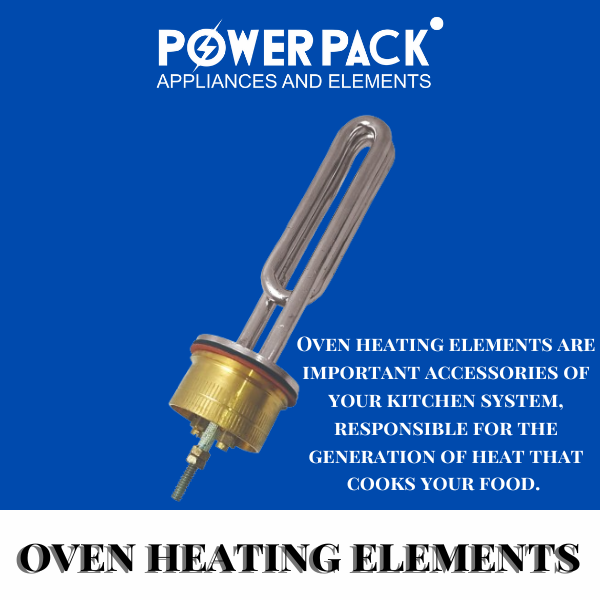How Do Oven Heating Elements Work and Why Do They Burn Out?
Oven heating elements are important accessories of your kitchen system, responsible for the generation of heat that cooks your food. It could be baking a cake or roasting a bird; understanding how the elements work and why they often fail helps in keeping your oven in top condition. In this blog, we'll delve into the mechanics of oven heating elements and find common reasons why they may burn out......

Oven heating elements are important accessories of your kitchen system, responsible for the generation of heat that cooks your food. It could be baking a cake or roasting a bird; understanding how the elements work and why they often fail helps in keeping your oven in top condition. In this blog, we'll delve into the mechanics of oven heating elements and find common reasons why they may burn out.
How Oven Heating Elements Work
Oven heating elements are usually a metal alloy composition in combination with nichrome that has a high electrical current resistance. As current passes through the element, it resists the current and then gives off heat to the interior of the oven, hence cooking your meal.
There are some key types of heating elements in most of the ovens:
Bake Elements: These are located at the lowest part of the oven and provide the warm temperature necessary for baking. They provide warmth that is well spread within the route of the oven, selling steady cooking effects.
Broiling Elements: At the top of the oven, this is basically an element that helps in broiling meat. It produces high heat directly from the top, so you have that top crust nicely caramelized.
Both element types work in conjunction with the oven's thermostat, which controls the temperature by cycling the elements on and off to maintain the set temperature.
Why Do Oven Heating Elements Burn Out?
While being strong in design, oven heating elements have been known to burn out due to several motives. This will include:
Normal Wear and Tear: The constant heating and subsequent cooling cycles over time can motivate the heating detail to degrade. This is an herbal technique, and ultimately the detail can also destroy or fail.
Electrical Surges: This means that the heating element can become damaged by power surges or other fluctuations in electrical supply. Momentary voltage spikes can cause the element to overheat and prematurely burn out.
Physical Damage: The heating element may be physically damaged due to accidents or other contacts. As an example, dropping a heavy pan over the element or hitting something on top of it will cause cracks or breaks.
Poor Cleaning: Inadequate cleaning or safety would have collected debris or residue on the component, resulting in degraded performance and lifetime. Thus, regular cleaning will save you from this headache.
Faulty Thermostat: When the oven's thermostat goes bad, then it can cause the heating element to work at temperatures other than the specified ones. The faulty thermostat can cause overheating, and thus the element may burn out.
How to Prevent Heating Element Burnout
As such, to elongate the life of your oven heating elements and avoid untimely burnout, bear the following suggestions in mind:
Keep your oven smooth: This will save you from the accumulation of food debris and grease, which might have an effect on the performance of the heating factors.
Avoid Bodily Contact: Be cautious now not to knock or bump the heating elements while placing or removing cookware from the oven.
Check Electrical Connections: Ensure that electrical connections to the heating elements are solid and free of any damage. Defective wiring could cause electrical problems that can damage the elements.
Check the thermostat: If you are experiencing inconsistent heating or temperature swings, let your oven's thermostat be checked and calibrated by a professional.
Now that you know how best oven heating elements function and how to prevent damage, you are better equipped to keep your oven in top working order, so you can go on to produce scrumptious food for years to come.
For good heating elements and other oven elements, try Powerpack Electricals. They have ready components to keep all your kitchen appliances on their feet without a hitch.
.png)